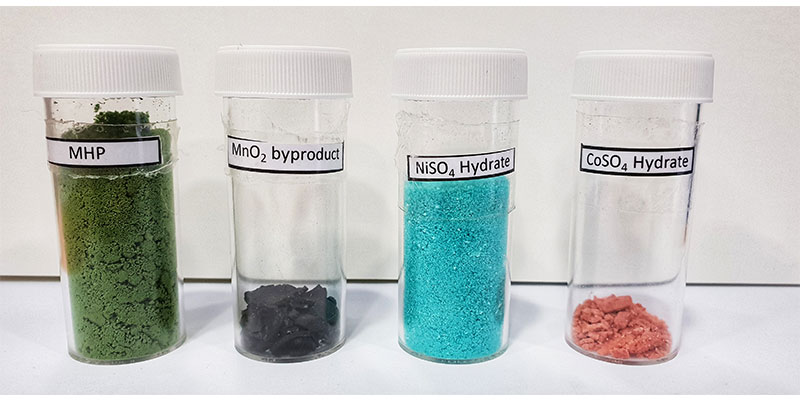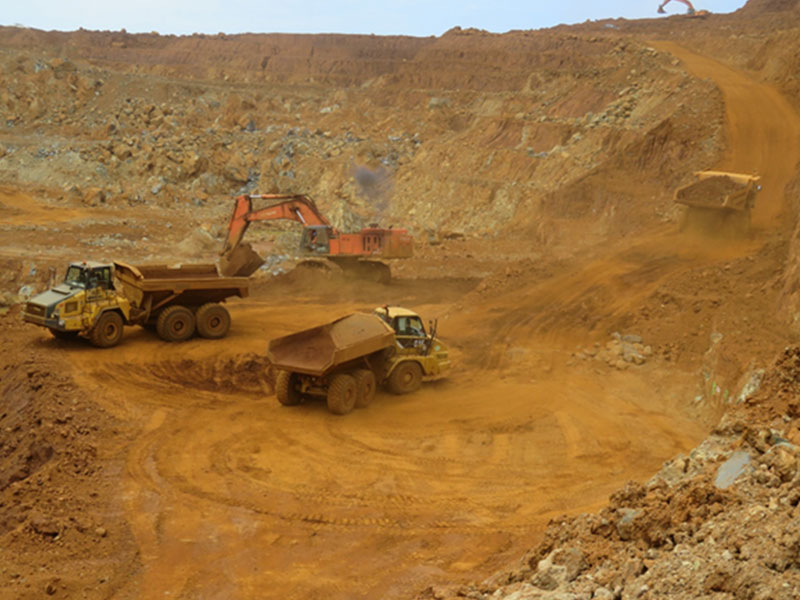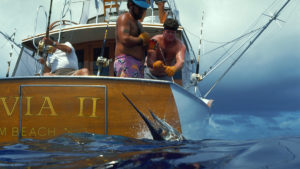Pure Minerals locks in nickel laterite expert for Townsville study

Pic: Bloomberg Creative / Bloomberg Creative Photos via Getty Images
Special Report: Pure Minerals (ASX: PM1) has secured the services of highly regarded engineering firm Lycopodium (ASX: LYL) to lead the pre-feasibility study on its new generation nickel-cobalt refinery project in northern Queensland.
Pure Minerals said on Friday that its wholly owned subsidiary Queensland Pacific Metals (QPM) had appointed Lycopodium as lead engineer for the PFS on the refinery project, which has been dubbed the Townsville Energy Chemicals Hub or TECH, following a competitive tender.
QPM, which was acquired by Pure Minerals earlier this year, is seeking to utilise technology developed by Direct Nickel to process high-grade laterite ore imported from New Caledonia and produce battery grade nickel and cobalt sulphate.
A scoping study on an operation processing 600,000 tonnes of ore to produce 25,000 tonnes of nickel sulphate and 3,000 tonnes of cobalt sulphate annually along with other valuable co-products was completed in January, and gave the company the confidence to progress with the PFS.

In its role, Lycopodium will have responsibility for design and engineering of the processing facilities, preparation of capital and operating cost estimates and compilation of the final PFS report integrating studies relating to other work packages.
Lycopodium Minerals managing director Rob Leonard said: “The outlook for battery metals is positive and the company is well positioned to carry out this body of work, having completed a wide range of studies for major, mid-tier and junior clients in this space”.
Not only has Lycopodium completed feasibility studies on other nickel projects incorporating downstream processing to produce battery chemicals such as BHP’s Nickel West project and Cleanteq’s Sunrise project, it has completed a feasibility on a processing plant using the Direct Nickel (DNi) process.
New technology offers cheaper solution
The DNi process uses nitirc acid under atmospheric pressure conditions to extract all valuable metals from lateritic ores.
As the name suggests, the High Pressure Acid Leach (HPAL) technology more commonly used in nickel laterite processing operates at higher pressure and sulfuric acid, meaning complex metal alloys need to be used in construction of these facilities.
These alloys are more expensive, more difficult to fabricate and have longer lead times than the standard stainless steel that QPM should be able to use in the construction of TECH.
It is at least partly for this reason that the scoping study estimated TECH would cost US$297 million to build (including a contingency of US$65 million), a fraction of the $1 billion-plus price tags that other similar nickel-cobalt projects slated for development in Australia are carrying.
Testwork done on samples provided by QPM’s New Caledonian ore supply partners last year demonstrated that the DNi Process was highly effective at extracting nickel and cobalt and suite to the company’s purpose.
In a show of confidence in the TECH Project, Lycopodium has agreed to accept Pure Minerals shares as consideration for approximately 20% of its estimated PFS fees.
The PFS is expected to be completed in the September quarter this year.

- Subscribe to our daily newsletter
- Join our small cap Facebook group
- Follow us on Facebook or Twitter
This story was developed in collaboration with Pure Minerals, a Stockhead advertiser at the time of publishing.
This advice has been prepared without taking into account your objectives, financial situation or needs. You should, therefore, consider the appropriateness of the advice, in light of your own objectives, financial situation or needs, before acting on the advice. If this advice relates to the acquisition, or possible acquisition, of a particular financial product, the recipient should obtain a disclosure document, a Product Disclosure
UNLOCK INSIGHTS
Discover the untold stories of emerging ASX stocks.
Daily news and expert analysis, it's free to subscribe.
By proceeding, you confirm you understand that we handle personal information in accordance with our Privacy Policy.








